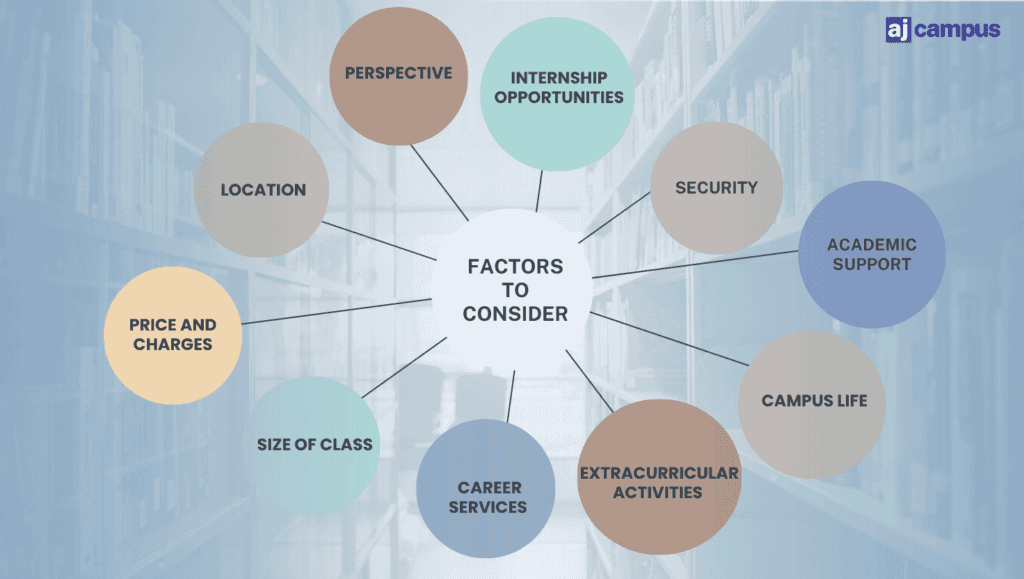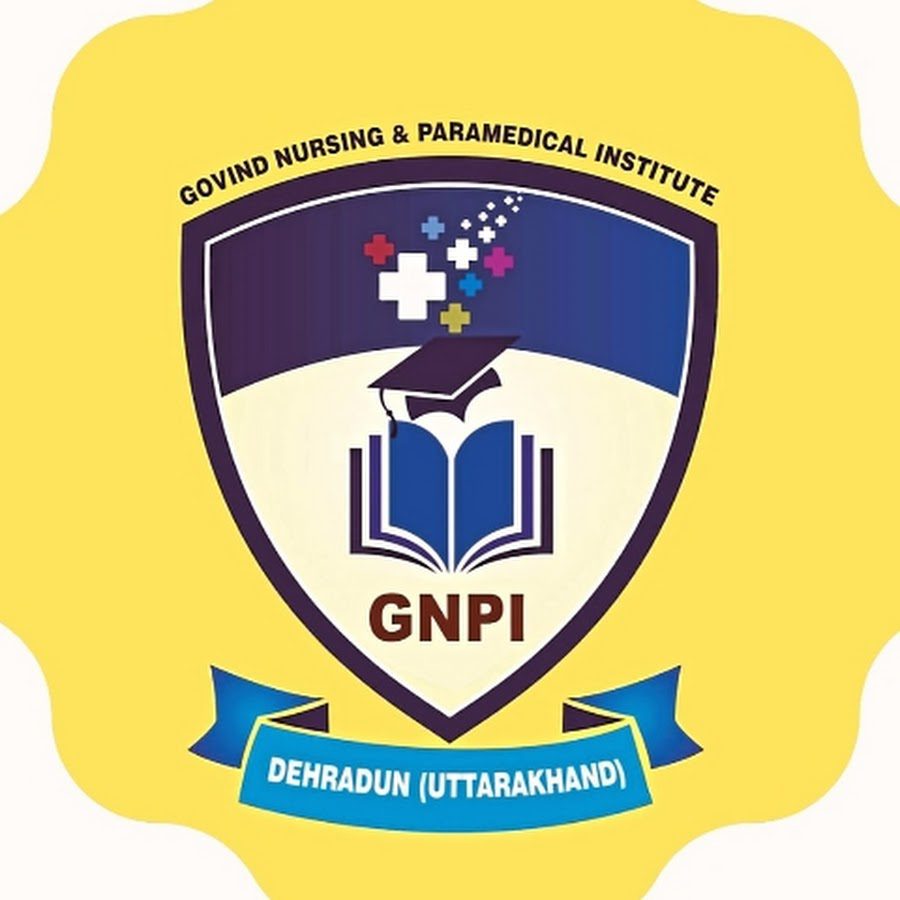How to choose the Best College
By Asha Rani, Last Updated 29 Jan, 2025 7 min read

Some students are looking for the best college. In actuality, there isn’t anything like that. But there are plenty of colleges where you may obtain a good education and be happy. Finding universities where you can achieve your goals is the first step in the college search process, which also involves discovering who you are and what you want. We are available to assist you with college selection.
Even though there can be a lot of universities that you would like to attend, it’s crucial to reduce the options to a reasonable list. You can locate colleges where you can succeed by following these methods.
Which is the Best College for you?
Think about your priorities, your desired destination, and your ideal self. You can use those responses to determine the kinds of universities that will help you achieve your objectives.
Top factors in choosing a college:

1. Perspective
What a college does to you matters the most while choosing a particular one. It is very essential to make sure that you feel the same level of comfort with your school, no matter how fantastic the programs, chances, or scholarships are. The institution will, therefore, provide an environment that will challenge you while offering you the tools you will need for the rest of your life in order to achieve your goals and dreams.
2. Internship Opportunities
In addition to being beneficial for future employment, experience in the sector of your interest is also a fantastic opportunity to find your hobbies and build your network. Examine the school’s research, study abroad, internship, and experiential learning programs.
3. Security
When selecting a school, safety in the immediate area is as important as campus safety and policies. What types of security measures are available at the school? What is the character of the neighborhood? Knowing a school’s student safety policies and procedures can help decide if it is the best fit.
4. Career Services and Academic Support
One type of education provided will be mainly affected by a college’s abilities to assist you with your class work. Different schools offer resources such as peer free tutoring and writing help but most schools cannot even offer one or the other, and others expect you to learn on your own. Yet another factor includes employment and graduation figures to consider through a school postgraduate placement figure because it depicts the intensity level and success ability at those areas.
5. Life on campus
Your experience will be shaped by the overall ambiance and school spirit. Important things to ask include “How many students live on campus?” and “What are the weekend activities?” By asking these questions, you can gain a deeper understanding of college life. Asking questions about the residence halls or first-year programs will give you a fair idea of the level of student involvement, as each institution has its own Residence Life program.
6. Extracurricular Activities and Athletics
Are you interested in student government, athletics, theatre, or music? College is a time to nurture old hobbies and discover new ones, regardless of what you intend to do. Your ideal school will provide you with the chance to do both.
7. Both Majors and Minors
Every school has a unique curriculum, so think about what you hope to achieve over the following four years. Do you want more varied experiences or classes that are highly specialized in one field? Additionally, you should research the majors, minors, and emphases that each of the schools you are considering offer.
8. Size of Class
Learning is significantly impacted by class size. There is a distinction between large lectures with hundreds of students and smaller, discussion-based classes. Sincerely, think about your preferred learning method and the kind of relationship you hope to establish with your instructors. Teaching assistants frequently work with larger classrooms in larger schools.
9. Price and Charges
In the case of private colleges, the sticker price is typically not what a student will pay. Find out if the colleges or universities you are interested in provide financial aid or scholarships. Numerous renewable and municipal scholarships are also available.
10. Location and Home Distance
Selecting a school should involve more than just the campus, regardless of whether it’s a university that occupies a tiny town or a little school in the centre of a big metropolis. Both big and small campuses and communities have advantages, so you should explore what it’s like to live in each.
The distance between the college and home is another factor to take into account. While leaving your hometown can be wonderful, don’t forget to account for accessibility and transportation at occasions like holidays when you want to spend time with your loved ones. Staying close to home is also very acceptable. Students are frequently extremely busy with their studies and on-campus activities.
Out of all of these, which one is essential for comfort at a college? Which do you have greater flexibility with?
Additionally, consider your goals for your time in college. Do you desire a broad education or training for a particular job? “What do I want to go to college for?” ask yourself. Are the colleges you are considering strong in the major you have in mind?
Be Open-Minded When Selecting a College
In a college, what else should you looks for? As you start your search, keep an open mind despite having a general sense of what institution could be the best fit for you. When choosing where to attend college, consider the following strategies to maintain an open mind:
Your presumptions about what will work for you should be challenged. As a history professor at the University of Central Florida, Luis Martinez Fernandez observes, “You may not think you’re able to thrive in a large institution because you come from a small high school, but you may actually do better in that type of setting.”
Speak with those who are familiar with you. Share your objectives with your school counselor, parents, teachers, family, and friends. Find out if they can recommend any schools that would be a good fit for you.
Don’t narrow down your search. Some institutions may be excluded at the beginning of this process because you believe they are too costly or difficult to get into, but this may not be the case. Keep in mind that colleges consider more than just test scores and grades, and that financial aid can help make education more affordable.
Do Your Research to Find the Best College

It’s time to thoroughly investigate the schools on your list. Check out websites for college guides, websites for particular universities, and other online resources to find the information you need.
Write down your enquiries, and obtain responses by:
- Speaking with your teachers or school counselor.
- Looking through student blogs at colleges, if they have any.
- Making direct contact with college admissions officers or using resources like our Connect with Colleges section requesting recommendations from admissions officers for recent graduates or current students to speak with.
- If at all feasible, visiting college campuses. See the Campus Visit Checklist for further details.
Maintain Perspective When Choosing a College

Continue to ask yourself about your tastes and objectives while you seek. Throughout high school, you keep changing. As you search, your responses to the question, “What college fits me?” may alter.
Keep in mind that you can succeed at a variety of schools and that there are numerous excellent colleges that are appropriate for every student. At College Board, we include test results as an extra consideration to balance your list. Consider classifying your universities into three groups:
- Safeties: You scored higher on the SAT or ACT than the first-year class average from the previous year.
- Matches: The SAT or ACT score falls comfortably within the same range as the first-year class from the previous year.
- Reaches: The SAT or ACT score falls below the range of average scores for the first-year class from the previous year.
Explore each college’s College Profile that interests you to learn more about it. For convenient comparison with your test results and high school GPA, you can examine admissions data. Information about subjects like academics and tuition fees is also available.
We advise adding three reach colleges, two matches, and one safety college to your list of universities to make it well-rounded and improve your chances of getting accepted.
How to Choose Which College to attend
The question, “What college should I go to?” has no simple solution. Everybody has different goals. There are probably a number of schools that meet all of the requirements. Think about the things that matter most to you. To keep your options open, be open-minded, take advantage of every opportunity, and submit multiple applications.
There are many of top-notch schools to help you become ready for the future. Visit college websites to find out more about them. Limit your choices. Choose the college that best suits your needs. And prepare for the college interview using best resources and take advise from the college counselors.
Conclusion
The process of looking for a college might be intimidating. It involves travelling absurdly early in the morning, viewing campuses with overly enthusiastic tour guides, asking a tone of questions, and attempting to take in the deluge of information about every institution. Nevertheless, when you can choose the college that will be your new home with confidence after all the miles, there is an unfathomable sense of delight. Getting a good college also depends on how good you did in your Class 12th CBSE Exams. Your score plays a vital role in getting the best college for you according to your interest.
Related FAQs
How can you determine an excellent college?
Location and distance from home, class size, tuition, majors and minors, athletics and extracurricular activities, campus culture, safety, academic help and career services, and internship opportunities are the most important considerations while choosing a college.
How can one determine a college’s quality?
These include the number of pupils per teacher, the level of research support provided by the university, and the qualifications of the instructors. Being aware of these factors enables you to make wise decisions for your time in college. It enables you to choose colleges committed to providing you with an excellent education.
How can I pick the best college after my 12th class?
After completing your 12th grade education, you should think about your academic interests, career goals, desired location, college rankings, course curriculum, campus life, affordability, and facilities. You should also thoroughly research various colleges and programs and make sure they match your goals. If you need advice, you should speak with a career counselor.
What percentage in 12th grade is necessary for a decent college?
Depending on the particular college and course you’re looking for, as well as the board you’re from (CBSE, State Board, etc.), to get into a “good college,” a 12th grade percentage of 85% to 90% is typically seen as ideal.
How can I get admission in a good college?
You will stand out from the competition if you have a solid GPA, excellent test results, a clear, truthful, and well-written personal statement, and a distinctive extracurricular activity or passion.




